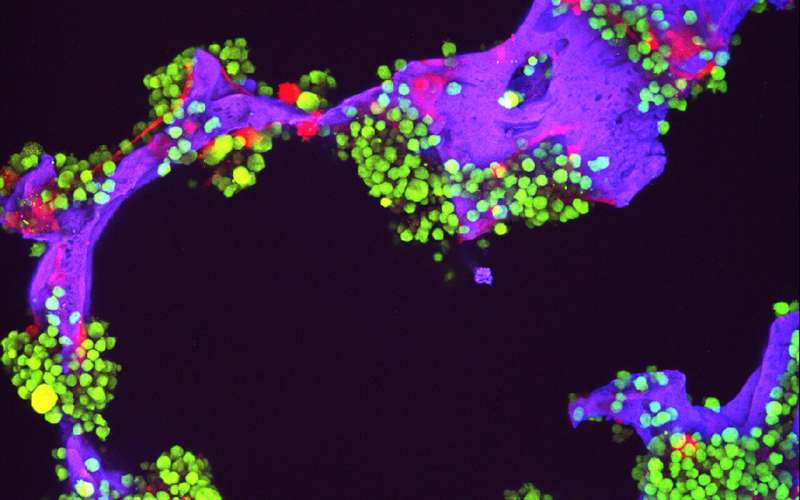
A preclinical study has found multiple myeloma is highly sensitive to a newly developed experimental therapy, according to research published today by Peter Mac scientists.
Multiple myeloma is a type of blood cancer that that originates in plasma cells, immune cells in the bone marrow that normally produce protective antibodies.
These abnormal plasma cells proliferate rapidly and do not produce productive antibodies thus reducing the body’s ability to fight infection.
About 2,000 Australians are diagnosed with multiple myeloma each year.
Dr. Simon Hogg, lead author of the study published in the prestigious Molecular Cell journal today, says now for the first time Peter Mac researchers were exploring the effects of new drugs that inhibit two closely related enzymes called P300 and CBP.
P300 and CBP have long been suspected to work together to support cancer cell growth, however there have been no drugs developed that can inhibit their activity until very recently, and their exact role in cancer was not completely understood.
“We discovered that multiple myeloma is highly sensitive to this new therapy, more so than many other cancers,” Dr. Hogg says.
“These drugs can quickly turn off key cancer-causing genes, called transcription factors, that directly control the growth of multiple myeloma.”
Transcription is a very important process in cancer, Dr. Hogg says, because cancer cells need to maintain high levels of transcription to support fast growth.
This new experimental therapy works by specifically turning off many important cancer-causing genes, lowering rates of transcription in the cancerous plasma cells and leading to their death.
“Currently this experimental therapy is being tested in the laboratory only, we hope that these results might spur efforts to start testing in patients,” says Dr. Hogg, previously of Peter Mac and now a research fellow at Memorial Sloan Kettering Cancer Center in New York.
Peter Mac Executive Director Cancer Research Professor Ricky Johnstone—and one of the senior authors of the study—says his team also looked at how the therapy worked in combination with other drugs, identifying drugs that counteracted its effect and others that enhanced its efficacy.
Source: Read Full Article
